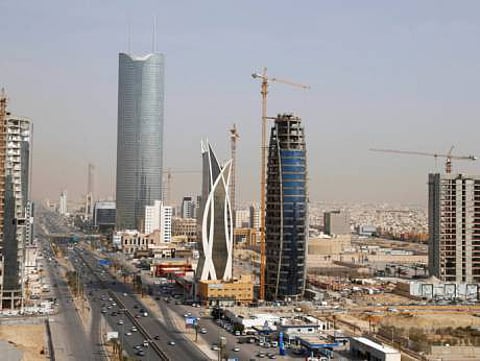Why the idea of nationalism is misplaced
Saudi Arabia needs its expatriates and stands to gain by improving its cultural diversity rather than bottling it up

There is a growing feeling of nationalism in Saudi Arabia, one that has begun to view expatriates more as a burden than a vital part of the machinery that runs the country. As one who has been a proponent of the authorities granting citizenship or permanent residency to long-term residents who have contributed positively to Saudi society, I often find myself at odds with other nationals who feel my views are misguided.
A Saudi businessman who disapproved of my views argued that by opening up the doors to immigrants, the Kingdom would be flooded by individuals who would do little to contribute to the economy. On the contrary, he said, they would be a burden on our resources. He went on to claim that we would see them scattered on our street corners, begging. And this at a time when our own youth will be facing a scarcity of jobs. “And what happens to such people when they cannot find the means for daily sustenance through charity? They will soon resort to crime, and go against their hosts!” he emphasised. I had to interrupt to remind him that my views reflected on deserving folks, and not seekers of streets lined with gold.
A woman running a multi-million riyal group of companies on her own was worried that the influx of immigrants through the liberalisation of immigration laws would have a negative impact on Saudi Arabia’s own unique brand of society and culture. I couldn’t hold myself back. “What utter nonsense,” I replied. “What special brand are we Saudis continuously heralding? We are no different than the rest of the world and today we face similar challenges.” This concept that we are different from others is perhaps what is ailing Saudi society and preventing it from moving forward with the other nations. Statistics indicate that Saudi Arabia lags behind many developed nations when it comes to social care, education and welfare. In the field of education, health care and several other services, are Saudis indeed leading with their brand of a unique society? So much potential growth has been hindered by such views as I see it.
I am not suggesting that Saudis do away with their laws. What I am stating instead is to do away with the hurdles that potentially qualified residents face today and facilitate the process of their obtaining permanent residency or citizenship.
For example, a Saudi widow with children whose expatriate father had passed away today faces a range of problems as her children are not automatically granted citizenship. The process can be long and agonising, as we all know about the workings of Saudi bureaucracy. On many occasions, we have come across news reports about one child being granted citizenship while the other was denied. How can that create a harmonious atmosphere to raise children? And what potential damage is created within young minds?
I know of an Indian national who has lived and worked in Saudi Arabia for more than 30 years. He was married to an Indian lady in Saudi Arabia and all three of their children were born in Saudi Arabia. Over the years, the man had been diligent in his work and in providing for his family. He was free from any criminal activity and to his credit had trained many Saudis, some of whom today are executives in his company.
He tells me Saudi Arabia is his home and he feels out-of-place when he visits his relatives back in India. There is no sense of belonging to his homeland after such a long period of separation, except for the formalities of annual visits. Today, he is a worried man as two of his children have reached the age to pursue a university education, but he doesn’t know where to send them. Canada and the United States are potential destinations, but the distance and cultural differences will surely unnerve this tight-knit family. The man wants to become a Saudi citizen, but has apparently lacked the number of points as laid out in the citizenship laws.
Why not facilitate his desire to become a Saudi? Is he adding to the nation’s unemployment? On the contrary, Saudi Arabia gains more than it loses by improving its cultural diversity rather than bottling it up. Many of Saudi tastes and needs have been fashioned by immigrants of yesteryear. Yet, Saudis cling on to this false sense of a unique or special society. Let Saudis not deny the fact that most of these expatriates are contributing heavily towards the smooth running of this country.
Allow those people to continue to stay in Saudi Arabia, who contribute to the growth of the country and pledge their allegiance to the Saudi flag. The only impact I foresee on Saudi economy will be a positive one.
Tariq A. Al Maeena is a Saudi socio-political commentator. He lives in Jeddah, Saudi Arabia. Twitter: @talmaeena.



